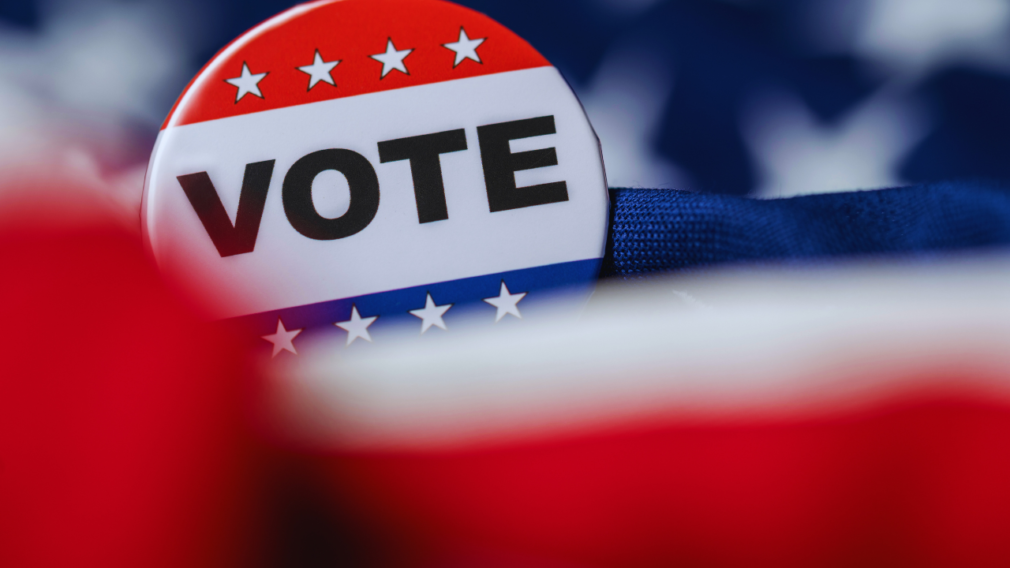New Legislation Seeks to Ban Betting on U.S. Elections
A bipartisan push to outlaw election betting is gaining momentum with the introduction of the Ban Gambling on Elections Act in the U.S. House of Representatives.

A Dangerous Precedent?
Spearheaded by Representatives Jamie Raskin (MD-08) and Andrea Salinas (OR-06), the bill mirrors a Senate version introduced by Senator Jeff Merkley (D-OR) and aims to prohibit political election wagering by amending the Commodity Exchange Act.
This legislation addresses growing concerns about how gambling on elections could erode public trust, incentivize manipulation, and undermine the democratic process.
Betting on election outcomes is not a small-scale activity. Reports estimate that at least $930 million was wagered on the 2024 election across two major betting platforms. These bets ranged from predicting the presidential contest winner to which party would control Congress. The staggering sums involved highlight the growing market for election betting—and its potential risks.
“Elections betting sets a dangerous precedent, incentivizing bad actors to try and influence or interfere with our election systems,” said Rep. Salinas. “We cannot play roulette with our democracy by allowing this kind of wagering.”
The act of gambling on elections, critics argue, transforms the sacred democratic process into a profit-driven spectacle. Sen. Merkley likened it to betting on a baseball game while controlling the umpire, saying: “This practice is corrupt since those betting can influence the outcome by funding late-cycle smear campaigns.”
Safeguarding Electoral Integrity
At the heart of this legislation is a commitment to preserve the integrity and transparency of U.S. elections. Rep. Raskin, a long-time advocate for banning election betting, emphasized the need for reliable electoral systems free from the shadow of gambling odds.
“Our democracy demands reliable and transparent processes to cast ballots and tally results, not a horserace clouded by gambling odds and bets placed,” he said.
The bill’s proponents also highlighted the risk of gambling addiction and its associated harms. While sports betting and online gambling have become ubiquitous, Salinas stressed the importance of addressing gambling’s societal impact, noting plans to push for more federal resources for addiction research and treatment.
Broader Implications of Election Betting
Critics of election wagering warn of its far-reaching consequences:
- Manipulation Risks: High-stakes bets could encourage bad actors to influence outcomes, such as funding misinformation campaigns or pressuring election officials.
- Public Distrust: Widespread gambling could further erode Americans’ confidence in election integrity, especially at a time when trust in the democratic process is already low.
- Distraction for Regulators: Allowing election betting could burden the Commodity Futures Trading Commission (CFTC), which lacks the resources and expertise to manage this type of activity effectively.
Dennis Kelleher, CEO of Better Markets, summed up the risks, stating: “Betting hundreds of millions if not billions of dollars on elections will incentivize manipulation and interference while undermining Americans’ faith and trust in elections.”
Building Momentum for Change
The Ban Gambling on Elections Act represents a growing recognition of the need to act against election betting before it becomes even more entrenched.
In recent months, platforms like Kalshi and Polymarket have driven the surge in election betting. Kalshi, operating with partial regulatory approval from the Commodity Futures Trading Commission (CFTC), offers futures contracts on congressional elections.
Meanwhile, Polymarket operates offshore, leveraging blockchain technology to provide decentralized prediction markets. The platform operations spark controversy. It was already fined $1.4 million in 2022 for regulatory violations and continues to operate largely outside U.S. jurisdiction. In 2024 its allowance of unlimited bets has raised concerns about “whales” (big-money players) manipulating market outcomes.
Rep. Raskin and Sen. Merkley have both pushed for similar measures in the past, including calls for the CFTC to reject requests from private companies seeking to establish election gambling markets.
Recommended
